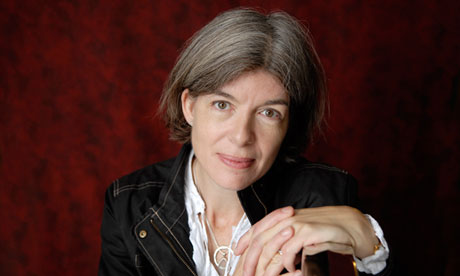
In literature, as in society, we have a problem with the idea of female anger. In both spheres of experience, we encounter women who are predominantly preoccupied with the idea of being liked, driven by the need to make themselves palatable to others.
It's difficult to think of any great novel by a woman that has at its heart an unapologetically furious female narrator who is not insane, thwarted or clinically depressed (Lionel Shriver's We Need to Talk About Kevin and Rachel Cusk's Arlington Park being honourable exceptions to the rule).
Perhaps, in these straitened economic times, publishers are afraid of allowing novelists to create unsympathetic characters who will not resonate with a wider audience. Perhaps readers expect women to write nice stories about other nice women and leave all the complex, knotty stuff to the great male authors such as Philip Roth or Richard Ford. Or perhaps, depressingly, there simply aren't enough openly angry women in real life to inspire a convincing literary creation.
Claire Messud, however, is having none of it. The author's fourth novel, The Emperor's Children, was longlisted for the Man Booker prize and The Woman Upstairs, her fifth, is just as blazing and brilliant. The opening chapter kicks off with Messud's first-person narrator, Nora Eldridge, asking a question:
"How angry am I? You don't want to know."
Nora is furiously disillusioned. We meet her at the age of 42, when she is looking back at a period of her life as an elementary school teacher in Cambridge, Massachusetts, in her late 30s. She became a teacher, she explains, even though she always wanted to be a great artist. But, through a combination of cowardice (feeling intimidated and self-doubting) and circumstance (having to care for her ill, slowly dying mother), Nora never pursued her youthful ambitions.
Instead, she did what was expected of her and what she expected of herself, just like her eponymous namesake in Ibsen's A Doll's House. In doing so, she became what Messud cleverly describes as: "The Woman Upstairs … We're not the madwomen in the attic – they get lots of play, one way or another. We're the quiet woman at the end of the third-floor hallway, whose trash is always tidy, who smiles brightly in the stairwell with a cheerful greeting, and who, from behind closed doors, never makes a sound. In our lives of quiet desperation … not a soul registers that we are furious."
I quote this passage at length because I love it so much. How many women like this do we know? And how much of it do we recognise in ourselves: that same lack of self-belief, the neediness, the insatiable appetite for an outside approval we know, deep down, will never satisfy us? Messud makes Nora a compelling narrator – both clear-eyed enough to understand how the world sees her and self-deceiving enough to let us question the gaps between her inward perception and the outward reality.
Into Nora's humdrum existence come the exotically glamorous Shahid family – a beautiful boy, Reza, who joins her third-grade class, and his father, Skandar, a scholar of Lebanese origin who has decamped from Paris for a year-long placement at Harvard. He brings with him his captivating wife Sirena, an artist of Italian descent who is looking for someone with whom to share studio space.
Nora, enchanted by Sirena's easy charm, agrees to share the costs of a studio with high ceilings in a rundown part of town. Finally, she feels able to start work on her true calling. Within these four walls, Nora and Sirena develop a close friendship. The studio, we are told, is L-shaped – an echo of Lynne Reid Banks's The L-Shaped Room and one of many references to past art and literature that has tackled women's downtrodden position in society (it is no coincidence that when Nora eventually does get a room of her own in which to create her art, she has plans to build a miniature replica of Virginia Woolf's study).
The art the two women create reflects their personalities. Nora works with laboured, intricate exactitude on a small scale, as though her ideas do not deserve any bigger space. Sirena, by contrast, creates a vast installation project entitled Wonderland which might mean everything or nothing.
As the book draws on, Nora becomes increasingly enraptured by the Shahids and their way of life while Messud smartly leaves us uncertain as to what they think of her. Increasingly, there seems to be some sinister undertow to their interactions. Nora is half aware of a creeping sense of unease but to admit it would be to risk her newfound sense of vitality. The Shahids – and Sirena in particular – offer Nora a vision of what her life might be but also a new way of seeing herself.
The interplay between reality and imagination in this textual hall of mirrors makes for a deft study of character underpinned by a gripping narrative. Messud writes beautifully and wryly (a crowd of tourists visiting an art gallery with audio guides are described as "a mass that drifted slow and imperturbable as oxen") but the real achievement of this novel is to imbue every chapter with thought-provoking questions surrounding the place of women in literature, society and – most importantly – their own minds. Female anger has never been so readable.

